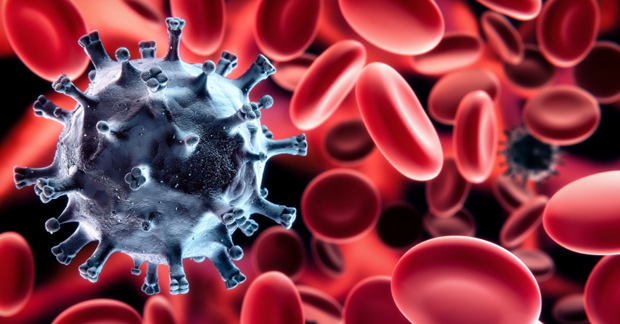Fibromyalgia (FM) is a condition with a polarized audience comprised of those who believe it's real and those who don’t. This interesting political-like conflict is, in a large part, centered around the topic we discussed last month concerning the causes of FM. This month's article will focus specifically on the immune system and its relationship to FM.
“EXTRA, EXTRA, READ ALL ABOUT IT! New research published on 12-17-12 in BMC Clinical Pathology describes cytokine abnormalities were found in FM patients when compared to healthy controls.” OK! But what does that mean?
Very simply, this study reports that immune dysfunction is part of the cause of FM. The most exciting part is that this study identified a BLOOD TEST (finally!) that, “…demonstrates value as a FM diagnostic tool.” Looking at this closer, the researchers used multiple methods to examine cytokine (proteins that help regulate our immune response) blood levels in FM patients. They found the FM group had, “…considerably lower cytokine concentration than the control group, which implies that cell-mediated immunity is impaired in fibromyalgia.” This study’s findings of an immune response abnormality strays from previous study findings which largely pointed to the central nervous system (CNS – brain & spinal cord) as the origin of the FM syndrome. This makes some sense as the study of immunology (in this case, “neuroimmunology” – the combination of neurology and immunology) has only been around for about ten years, and as such, may hold some important answers as more evidence is uncovered to further support this potential “paradigm shift” in considering the primary cause of FM. The authors offer further excitement as this focus could lead to a better understanding of the cause of other neurological conditions such as multiple sclerosis (MS)! They go on by describing how body temperature, behavior, sleep, and mood can all be negatively affected by “pro-inflammatory cytokines” (PIC) which are released by certain types of activated white blood cells during infection. PIC have been found in the CNS in patients with brain injury, during viral and bacterial infections, and in other neurodegenerative processes (like MS)!
To further support this advance in understanding, the National Institutes of Health (NIH) reported, “…Despite the brain’s status as an immune privileged site, an extensive bi-directional communication takes place between the nervous and the immune system in both health and disease.” They describe multiple signaling pathways that exist between the brain and the immune system that function normally throughout our lifetime. When immune, physiological, and psychological “stressors” occur, cytokines and other immune molecules stimulate interactions within the endocrine (our hormone) system, nervous system, and immune system. To prove this, brain cytokine levels go up following stress exposure and similarly go down when treatments are applied that alleviate stress. They list other conditions such as stroke, Parkinson’s, Alzheimer’s disease, MS, pain, and AIDS-associated dementia as being similarly affected as well. They also report that cytokines and other neuro-chemicals play a role in our neuro-development throughout our lifespan, help regulate brain development early in life and brain function throughout life, and how this all changes in the aging brain. There are also interactions of these immune chemicals that result in gender differences on brain function and behavior.
Needless to say, it will be very interesting to watch for additional developments along this line of research as it pertains to the FM patient and future treatment recommendations! Also, immune stimulation by chiropractic adjustments has been postulated as a benefit and this too may be better understood using this new research approach!




